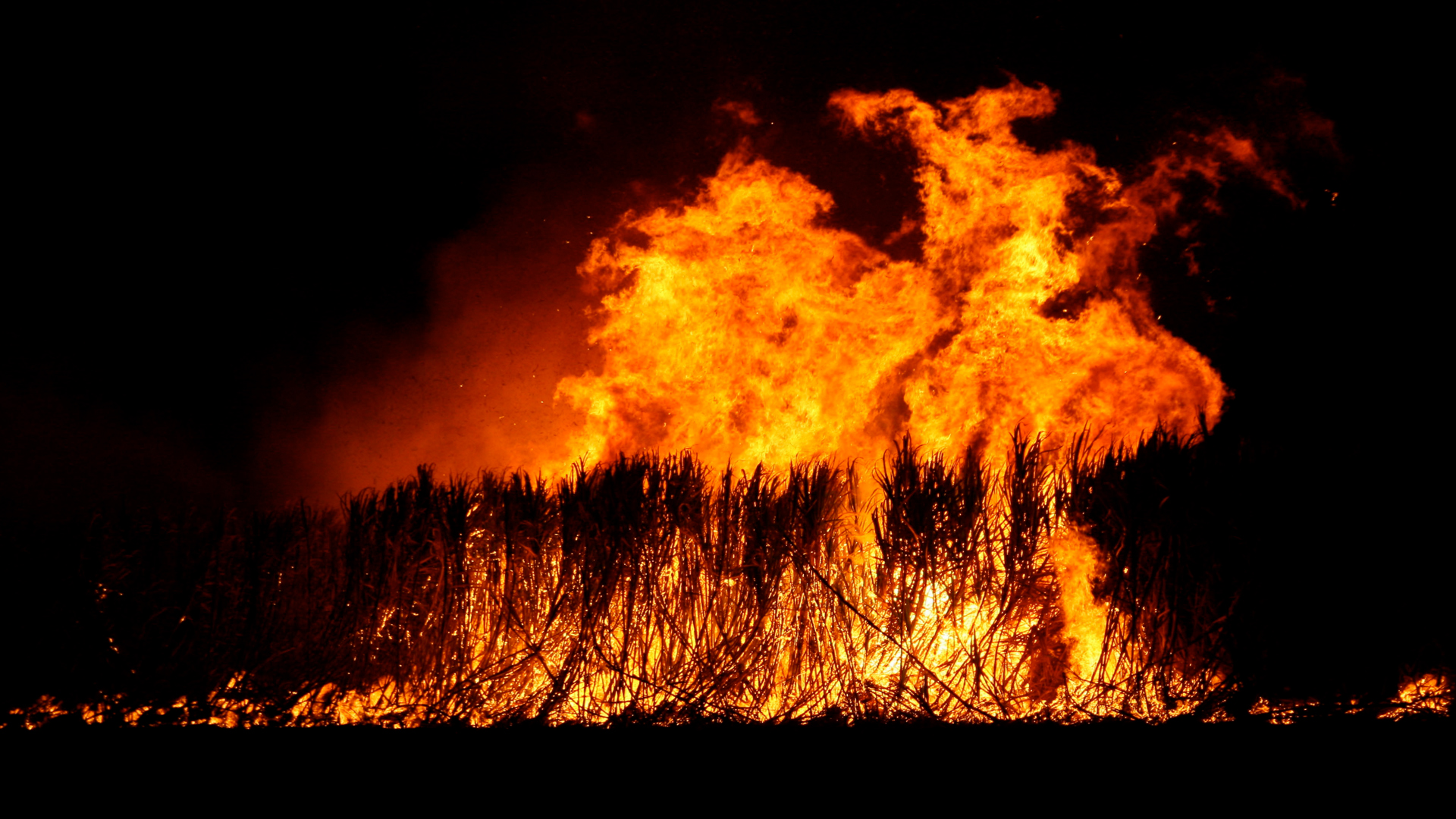States
A Fight Against The Effects Of Sugarcane Burning By Florida’s Generation Z

Christine Louis-Jeune returned to Belle Glade, Florida, to find a frightening memory of sugarcane burning season. Locals called the ash and soot “black snow,” which exacerbated health issues and prompted an urgent call to action.
Louis-Jeune, an environmental science student at Florida Agricultural and Mechanical University, organizes the Sierra Club’s Stop the Burn campaign in Florida. Her experiences in Belle Glade, a primarily Black town, inspired her to gather young activists against sugar crop burning.
From October to March, South Florida farmers burn nearly 400,000 acres of sugarcane, which harms locals’ health and raises environmental justice issues. Many low-income city residents have complained about the yearly burning’s health consequences, and research supports these assertions.
Louis-Jeune’s project is part of a more extensive campaign to switch from sugarcane burning to green harvesting, which uses mechanical harvesting devices to remove leaves and tops. The community opposes this change due to employment losses and economic repercussions.
The local sugar industry has a complicated racial and economic history. After growing up in Belle Glade, Louis-Jeune has seen the cycle of poverty and environmental issues many inhabitants suffer, calling it “environmental slavery.”
The Florida sugar business downplays the health effects of sugarcane burning despite activist efforts and studies. A 2021 inquiry found that the region’s lone air quality sensor had failed for years, casting doubt on industry assertions.
Sugar businesses’ economic strength and influence have made it difficult for campaigners to get government and other local support. Louis-Jeune persists in highlighting the problem and advocating for her community.
Louis-Jeune’s perseverance and passion represent the common goal for a future without socioeconomic or racial discrimination in environmental justice. Her and other activists’ initiatives signify a rising movement to protect sugarcane-affected communities’ health and well-being.
Belle Glade Environmental And Racism:
Belle Glade, Florida’s sugarcane capital, struggles with systematic racism. The yearly sugarcane burning season has hit the primarily Black town, resulting in “black snow” that reminds locals of their environmental injustices. Despite accumulating evidence of this practice’s health risks, the town’s requests for action have been mainly ignored, underscoring racial gaps in environmental regulation and protection.
Sugarcane Burning: The Legacy Of Big Sugar And Racism:
Belle Glade’s sugar business is tainted by racial suppression and economic exploitation. Enslaved Africans worked hard to build the sugarcane business, which began in chattel slavery. Many local people are still mired in poverty and restricted financial options due to this exploitative structure. Despite its economic importance, the sugar business has perpetuated “environmental slavery,” causing health problems and social inequality in the primarily Black population.
Environmental Justice Battle: Advocacy And Resilience
Young environmental justice activists like Christine Louis-Jeune have shown optimism despite systematic racism and the sugar business. Louis-Jeune’s perseverance, anchored in her own experiences and propelled by her community, delivers a generation committed to changing the current quo. Despite resistance and the sugarcane industry’s political power, Louis-Jeune’s unwavering advocacy reflects a growing movement to end the industry’s discrimination and create a more equitable and sustainable future.
Health Effects And Inequality:
Belle Glade’s yearly sugarcane fire has far-reaching effects beyond smoke and ash. Prolonged exposure to toxic chemicals causes many health problems for residents, especially underprivileged ones. Sugarcane burning has been linked to respiratory disorders, including asthma and others. The town’s Black population is disproportionately affected, highlighting regional environmental inequities. Despite overwhelming evidence that sugarcane burning is dangerous, the industry’s claims of safety ignore the misery of people living in the fields’ shadows.
Collective Empowerment And Community Resistance:
Belle Glade has created a culture of collaborative resistance and empowerment despite institutional limitations. Residents, activists, and groups are speaking out for sustainable and fair sugarcane sector practices. Community leaders like Christine Louis-Jeune, who refuse to be silenced, have led grassroots campaigns like the Stop the Burn campaign. Community-led efforts have stressed solidarity and teamwork in challenging the current quo and seeking responsibility from powerful institutions that have disregarded the town’s citizens.
Comprehensive Policy Reform And Environmental Justice:
The Belle Glade battle highlights the need for comprehensive policy change that promotes environmental justice and resource equity. Advocates and scientists stress the need for strict sugar industry rules that protect the environment and community health. Green harvesting as an alternative to sugarcane burning has gained popularity, emphasizing the potential for sustainable solutions that reduce the town’s environmental and health dangers. A comprehensive strategy based on environmental justice and community well-being is needed to solve the sugar industry’s structural difficulties and create a more fair and sustainable future for Belle Glade and its citizens.
Belle Glade Youth Activism Leading Change
Christine Louis-Jeune, a teenage Belle Glade, Florida activist, spearheads the battle against sugarcane burning. Her work and those of other young activists have emphasized the need for environmental justice in systemically racist areas. Youth activists are changing environmental and racial justice rhetoric via grassroots organizations and social media. Their perseverance shows how youth-led movements can change the world and hold big institutions and governments accountable. Youth views help create lasting solutions and empower communities as the movement grows.













You must be logged in to post a comment Login